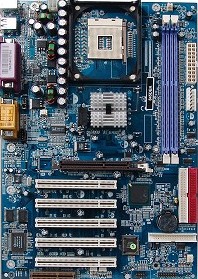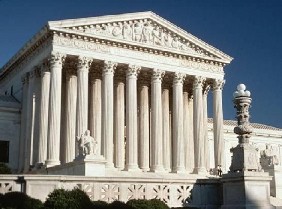Superior trial skills and outstanding legal knowledge alone are not
sufficient to mount an effective and serious defense to allegations of computer
misuse, abuse, fraud or unauthorized access. This is true also when
defending a white collar or general crimes case involving extensive computer
generated transactions. The evidentiary issues that can arise in such a
case can be overwhelming for the best of attorneys and are in an evolving state
of legal flux. To effectively confront a legal issue the attorney must
first possess the basic skills necessary to identify it. What is essential
in a computer related case is a basic well rounded understanding of how
computers and computer networks work and what goes on "under the hood",
both on your desktop and hundreds or thousands of miles away at the other end of
the electronic super highway network.

Even for a trial attorney equipped with better than average computer skills, particular cases can be unique, difficult and intimidating. You should seriously consider choosing an attorney with a strong working knowledge of computers and how they interface and interact who will then be able to rely on and work closely with defense experts and mount the best possible defense. Useful skills include but are not limited to an understanding of: desktop computer hardware configuration and upgrading; software installation and maintenance; basic networking and file sharing; wireless networking and configuration; network file sharing; stand alone file sharing programs such as Napster and Limewire; data base management concepts; ISP services and internet logging and tracking; and fundamental understanding of programming concepts.
It also bears mentioning that Kansas City was chosen by the FBI as one of several sites around the country to locate a special Computer Crimes Forensic lab. Local law enforcement agents in this area have been particularly aggressive in bringing such cases and it is likely the trend will continue. Anyone charged with or suspected of computer related crimes should carefully review the qualifications of their attorney of choice and ensure themselves that the attorney is well qualified to meet the specific needs of the case. This means asking thoughtful and direct questions and, if necessary, seeking a second opinion.
Criminal law experience and skills:
It is also important to choose an attorney who has good forensic trail skills and substantial experience in federal court, as most of these cases will be indicted at the federal level. While attorneys in Missouri may not hold themselves out as specialists in criminal law, many do advertise that their general area of practice is criminal law. It is probably advisable to choose an attorney who devotes the major portion of his or her time to criminal practice as opposed to the attorney who holds himself or herself out as having a general practice. The law today is simply too complicated for an attorney to be an expert in all disciplines and the individual with a general practice may tend to be less informed on cutting edge issues and have less time before the court where your case will be tried.
When looking for representation you should not be shy about asking about fees
and associated costs and expenses such as expert witness fees, travel, defense witness subpoena costs,
and private investigation. You should thoroughly discuss all of this and
more with the attorney and you should not be hesitant to ask for an engagement
letter or contract spelling out in detail what is expected of both you and the
attorney. Finally, with respect to fees, do not preclude seeking a second
opinion on this and other matters addressed on this page.
expenses such as expert witness fees, travel, defense witness subpoena costs,
and private investigation. You should thoroughly discuss all of this and
more with the attorney and you should not be hesitant to ask for an engagement
letter or contract spelling out in detail what is expected of both you and the
attorney. Finally, with respect to fees, do not preclude seeking a second
opinion on this and other matters addressed on this page.
During your initial conference you should ask the attorney how many actual trials he has tried in the forum where you are indicted, how long he has been practicing criminal law, and whether he does appellate work. In federal court in Missouri the attorney is by local rule bound to handle appeals from jury trials in which he or she is counsel. Some attorneys will attempt to exclude appellate representation by contract or will advise you that they use someone else to do appeals. This is a clear indication that the attorney is probably not the best at doing legal research and brief writing or is simply disinclined to spend time on complicated legal research and the necessary briefing of the issues. You should shy away from these attorneys.
An effective appeal is dependant in large measure on how effective the trial attorney is at preserving issues at the trial level. Indeed, if not raised at trial an issue is generally waived for appeal. This means he or she must recognize the issues at trial before they come up, be prepared to brief those issues and conduct necessary pretrial hearings and do the necessary legal prep work prior to trial and make the proper objections during trial. Experience suggests that the attorney who does not like to do appeals is also usually not the best at doing the preliminary legal work at the trial level. Be wary of the attorney who tells you he will win your case by strong trial advocacy before the jury and that motion practice is a waste of time. The complexities of the Federal Rules of Evidence and their application to electronically stored data is daunting to say the least. In May, 2007, Chief United States Magistrate Judge Paul W.Grimm of the United States District Court for the district of Maryland has authored a 101 page memorandum opinion that has since been cited by numerous other legal scholars as one of the definitive works of authority on the admissibility of electronic evidence. The opinion with bookmarks is an excellent illustration of what the lawyer must know and be familiar with during computer litigation. See U.S. Lorraine v. Markel.
Remember, if you are facing a federal indictment it is a life changing event. Treat it and react to it the same way you would if you were told by your physician that you have a very serious life threatening illness. Be inquisitive, ask others for their opinions (without discussing the facts of your case) about various attorneys, and expect and demand full disclosure from the attorney you choose to represent you.
Selecting an Expert in a Criminal Case: In most cases in which the government or the state decides to use a computer forensic expert, it is strongly recommended that the defense also employ and use an expert with skills and experience similar to that of the opposition. The defense expert should review the relevant discovery and have at his or her disposal the report prepared by the government In some cases your expert will conduct the review and may well advise against preparing a separate report simply because the report will reinforce the government findings and defense expert testimony is therefore not necessary. In other situations, the defense expert may well find flaws or out and out mistakes in the report prepared by the government expert. In the latter situation such defense testimony may well be a lynchpin in the case for the defense. As noted above, the expert, regardless of his skills, must work closely with the attorney presenting his or her testimony. Many experts will prepare a written script or a list of key questions for the attorney; however, this is generally only a starting point. The attorney you select to try the case must then be able to develop and rehabilitate any areas covered in cross-examination during redirect. Your expert probably will not have the opportunity to do this for you for redirect. As there will be no script for this, again it is vitally important that the attorney have the requisite skills necessary to follow through in critical areas and protect the case. There are a number of private experts available. Your author has had outstanding success utilizing the services of Mr. Greg Chatten of Saint Louis, Missouri (See Curriculum Vitae). Mr. Chatten has testified in both state and federal court in both criminal and civil matters (See case participation list).
Further Study: For further study and review of computer issues and other matters addressed on this page, you should link to the following articles by clicking on the hyperlink to the left of the topic:
See: Summary of Findings of the US Sentencing Commission Computer Fraud Working Group
See: Computer Crimes by Dillon, Groene, and Hayward, American Criminal Law Review, Spring 1998, 35 Am. Crim. L. Rev 503
See: State by State list of statutory Citations dealing with Computer Crimes
See: Report to Congress on Adequacy of Federal Sentencing Guideline Penalties for Computer Fraud and Vandalism Offenses
See: University of Missouri, Kansas City web site on Computer-related crimes and punishment
See: How decisions are made as to whether or not to prosecute computer related crimes
See: Analysis of Jurisdictional thresholds for prosecuting computer crimes
See: The CPA Journal - Computer Fraud: Analyzing Perpetrators and Methods
To consult with an attorney about criminal defense matters, you may wish to review the following web sites: Web Sites of Kansas City Area Defense Attorneys
Discovery Issues in computer cases: Most of the investigative agencies and prosecutors are now turning over discovery in electronic format on CDs or DVDs. The trend is away of CDs toward DVDs because of the increased storage capability. Before you buy DVDs or provide an agency with blank DVDs to copy your discovery onto, you need to be aware of the differences in format and read and burn capability. See full explanation
Email syncing tip for Outlook Express Users Keep email up to date on multiple computers with this simple tip.